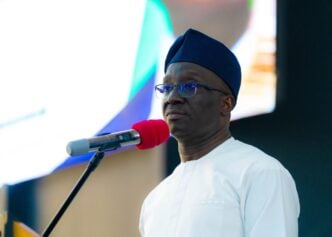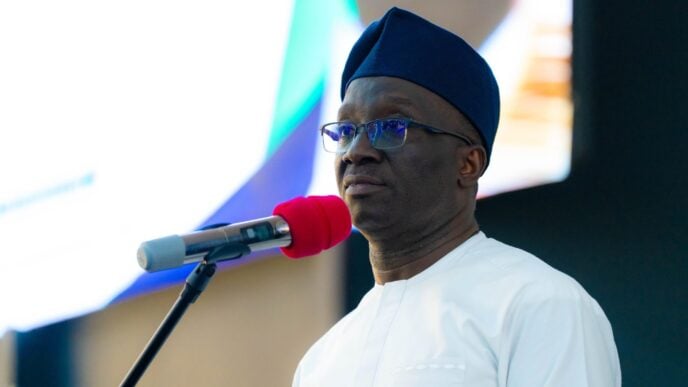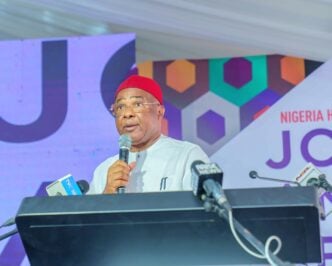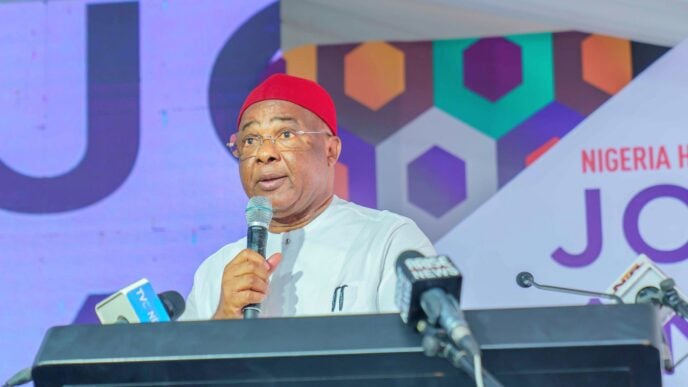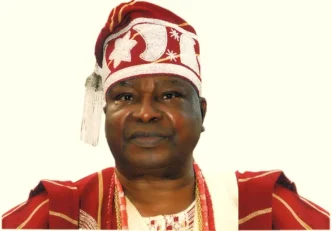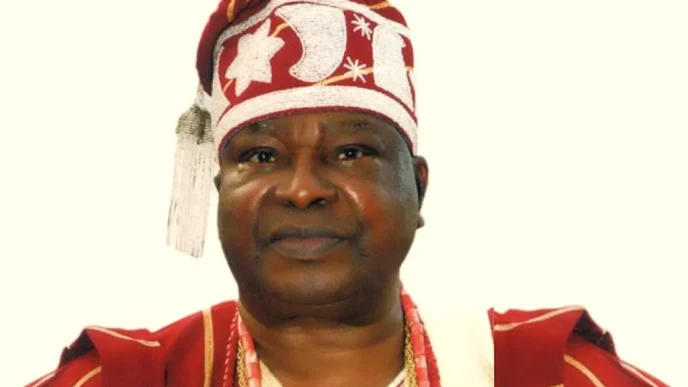The contrasting attitudes of two prominent British politicians of ethnic minority heritage – Kemi Badenoch, who has Nigerian roots, and Rishi Sunak, whose family hails from India – towards their ancestral homelands offer a compelling insight into the enduring legacies of colonialism and the complex nature of national identity. While former Prime Minister Rishi Sunak consistently expressed pride in his Indian heritage and a clear affection for India, Kemi Badenoch, now the Leader of the Conservative Party, has frequently articulated criticisms of Nigeria. This divergence in perspective is not merely a matter of personal preference but appears to be deeply rooted in the distinct colonial experiences and pre-colonial histories of Nigeria and India. Understanding these contexts is crucial to comprehending why members of the Nigerian and Indian diasporas often perceive their countries of origin so differently.
Rishi Sunak, the former Prime Minister and the UK’s first leader of Indian descent, openly celebrated his Indian roots during his time in office and continues to do so. He has described India as “very near and dear to me” and affectionately referred to himself as India’s “son-in-law.” Sunak’s pride in his heritage is particularly notable given that both of his parents were born in East African countries – his mother was born in Tanzania, and his father was born in Kenya. Despite their families having settled in Africa due to the British colonial project, their strong identification with their Indian heritage underscores the deep and lasting impact of India’s prolonged colonial experience and the robust national identity forged there, which transcends geographical boundaries and even subsequent generations born outside the subcontinent. This contrasts sharply with the often more fragmented sense of national identity seen among those with roots in African nations where colonial rule was shorter and often more focused on exploiting existing divisions.
Kemi Badenoch, who was born in Britain but spent a portion of her formative years in Nigeria, has earned a reputation for her candid critiques of Nigeria’s systemic issues, including corruption, insecurity, and challenges with governance. Her remarks have often ignited controversy, with many Nigerians perceiving her tone as denigrating. Ms Badenoch has previously articulated a stronger identification with her Yoruba ethnicity than with the broader Nigerian nation, seemingly distancing herself from other ethnic groups, particularly those in the north. She has been quoted as stating, “I find it interesting that everybody defines me as being Nigerian. I identify less with the country than the specific ethnicity [Yoruba]… I have nothing in common with the people from the north of the country, Boko Haram, where Islamism is. Being Yoruba is my true identity, and I refuse to be lumped with northern people of Nigeria, who were our ethnic enemies, all in the name of being called a Nigerian.”
More recently, Ms Badenoch’s comments regarding Nigerian citizenship for her children have drawn significant attention and criticism. During an interview, she stated that her children could not be Nigerian citizens because, as a woman, she is unable to confer citizenship to them under Nigerian law. This assertion, which highlighted gender-discriminatory aspects of Nigeria’s citizenship laws, sparked considerable debate within Nigeria. It is important to clarify that Ms Badenoch was mistaken in her assertion; her children are, in fact, eligible for Nigerian citizenship by birth. The Nigerian Constitution, in Section 25 (1) (c), explicitly states: “Every person born outside Nigeria, either of whose parents is a citizen of Nigeria” is a citizen of Nigeria by birth. This provision allows a Nigerian parent, whether mother or father, to transmit citizenship to their child born abroad. While the constitution does contain other provisions that have been criticised for their gender bias, particularly regarding citizenship by registration for foreign spouses, the specific claim about a mother’s inability to confer citizenship by birth to a child born outside Nigeria is inaccurate.
Advertisement
The reaction in Nigeria was largely one of disappointment and correction, with legal experts and commentators clarifying the nuances of the law and expressing concern that her statements might be misconstrued or used to broadly characterise Nigerian law as entirely preventing citizenship through the maternal line. Some viewed her comments as a further example of her often critical stance towards Nigeria, while others acknowledged the underlying issue of gender inequality within the country’s legal framework that her statement inadvertently brought to light. This, however, is not the objective of this analysis, but rather to highlight that even the Nigerian Constitution, which is often criticised for its origins, makes this point clear.
This stance, and her broader criticisms, reflect Nigeria’s complex colonial and post-colonial challenges. British colonialism in Nigeria, lasting approximately 60 years from the late 19th century until 1960, was relatively brief compared to India’s three centuries under British rule. The brevity of colonial administration in Nigeria, coupled with the British policy of “divide and rule,” exacerbated pre-existing ethnic divisions. Nigeria’s arbitrary borders, drawn by the colonial powers, brought diverse ethnic groups together into a single state without fostering a unifying national identity. This lack of cohesion continues to persist, contributing to internal incohesion and a sense of disconnection among many Nigerians, both domestically and within the diaspora. Nigeria, in essence, is still composed of the three broad units deliberately set against one another by the British colonists, a fragmentation that has hindered the development of a strong, unified national identity.
It is also pertinent to note the distinct origins of the two nations’ foundational legal documents. India’s Constitution, adopted in 1950, famously begins with “We, the People of India,” reflecting its drafting by a Constituent Assembly that, despite its limitations, was ultimately rooted in a popular movement for independence. This imbues the Indian populace with a powerful sense of ownership over their nation’s supreme law. In stark contrast, Nigeria’s current 1999 Constitution, while incorporating some civilian input, was promulgated as a military decree by the Provisional Ruling Council under General Abdulsalami Abubakar. This legacy of a “constitution by decree,” rather than one born from a truly constituent process involving the direct will of the people, contributes to a perception among many Nigerians that the document is imposed rather than owned, further diminishing their sense of collective ownership.
Advertisement
India’s colonial experience differed markedly from Nigeria’s. British rule in India extended over 300 years, during which the subcontinent endured severe exploitation, including three devastating genocides, such as the Bengal Famine of 1943. However, this prolonged oppression paradoxically fostered a unified resistance movement transcending regional and religious differences. Crucially, the tumultuous period of India’s independence also saw its partition, where the larger, undivided country was ultimately separated into three (originally two) slightly more homogenous units: India, Pakistan (which later split into Pakistan and Bangladesh).
While this partition was undeniably violent and tragic in human terms, involving immense displacement and loss of life, it ultimately resulted in entities that, for various complex reasons, aided in fostering a better sense of national cohesion within their new borders. Pre-colonial India also had a long history of cultural and political cohesion, with empires like the Maurya and Mughal dynasties laying the foundational groundwork for a shared identity. The Indian independence movement, led by iconic figures such as Mahatma Gandhi and Jawaharlal Nehru, further solidified this unity, cultivating a sense of collective pride that sustains to this day.
The disparity in attitudes between Nigerians and Indians towards their homelands is also evident in various surveys and diaspora narratives. For Nigeria, over 90% of its citizens told Afrobarometer that the country is “going in the wrong direction,” citing widespread economic hardship, corruption, and poor governance. Furthermore, only 6% believe Nigeria is on the right path, and a significant 24% have indicated there is “nothing to love” about being Nigerian. Conversely, in India, approximately 68–70% of Indians told the Pew Research Centre that their country is “getting stronger” on the global stage. Around 79% hold a favourable view of Prime Minister Modi, reflecting a prevailing optimism about India’s trajectory.
Several factors contribute to these differing perspectives. Firstly, the colonial legacies play a significant role: Nigeria’s relatively short colonial period left insufficient time to overcome pre-existing ethnic divisions, and the British “divide and rule” policy deepened these cleavages. Post-independence, these divisions have continued to fuel distrust and internal criticism. India’s prolonged colonial experience, despite its brutality, paradoxically allowed for the development of a unified resistance and a stronger national identity. The partition, while devastating, also led to the formation of more internally cohesive national units. Pre-colonial empires and deeply rooted cultural ties provided a solid foundation for this unity.
Advertisement
Secondly, pre-colonial history is a crucial element. Nigeria’s pre-colonial societies were diverse and often rivalrous, lacking an overarching political unity. The British exploited these divisions, leaving a legacy of fragmentation. In contrast, India had a history of large, unifying empires, such as the Maurya, Gupta, and Mughal dynasties, alongside shared cultural traditions like Hinduism and Buddhism, facilitating the formation of a collective identity.
Finally, post-colonial trajectories have also shaped these attitudes. Nigeria’s ongoing struggles with governance and economic stagnation have led to widespread disillusionment domestically and within the diaspora. Conversely, India’s economic rise and growing global prestige have bolstered national pride, which is reflected in the positive attitudes of its diaspora. The fundamental difference in their respective national constitutions’ perceived legitimacy and ownership further entrenches these divergent national sentiments.
The contrasting attitudes of Kemi Badenoch and Rishi Sunak towards their heritage countries are deeply rooted in their respective colonial histories and pre-colonial societal structures. Nigeria’s relatively brief colonial rule and its lack of pre-colonial overarching unity have left a legacy of division and internal criticism, exacerbated by the lasting impact of colonial divide-and-rule tactics and the military origins of its fundamental law. In contrast, India’s long history of shared civilisation and prolonged resistance to colonialism, combined with the complex, yet ultimately nation-forming, process of partition and a constitution rooted in popular sovereignty, fostered a strong, unified national identity that even extends to generations born abroad. These historical contexts shape individual perspectives and broader diasporic narratives, vividly illustrating how collective identity is intricately intertwined with national history and the enduring impact of colonial experience.
Nwanze is a partner at SBM Intelligence
Advertisement
Views expressed by contributors are strictly personal and not of TheCable.


